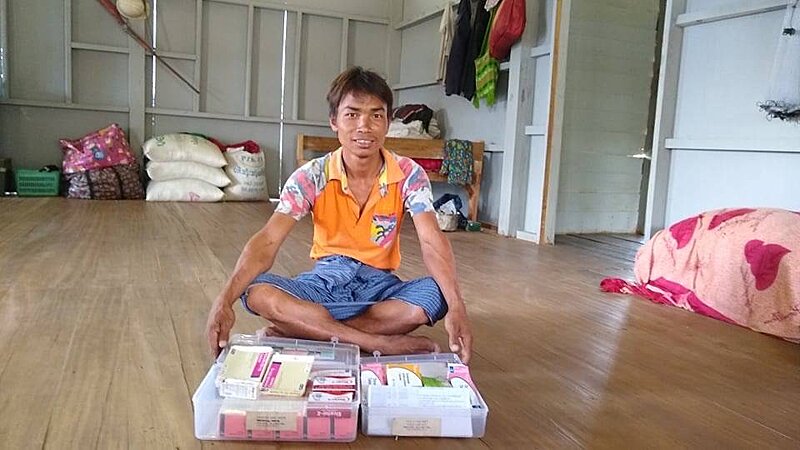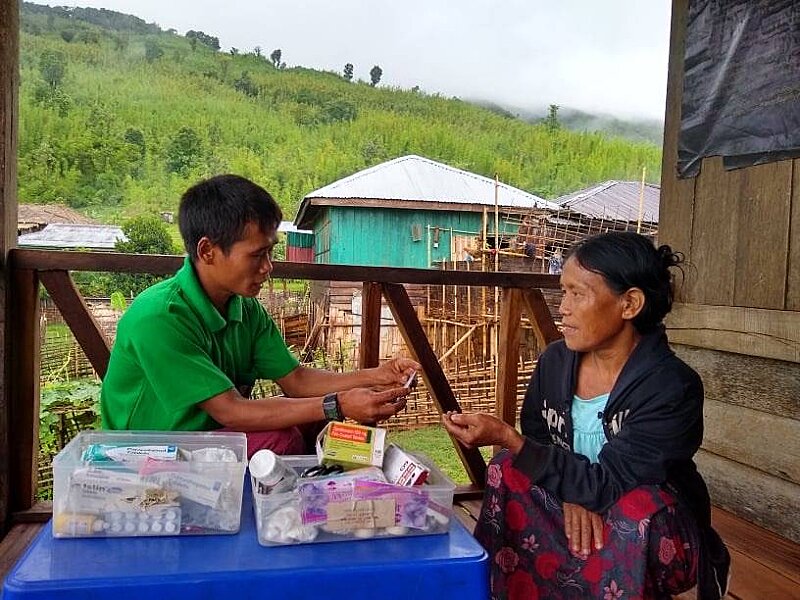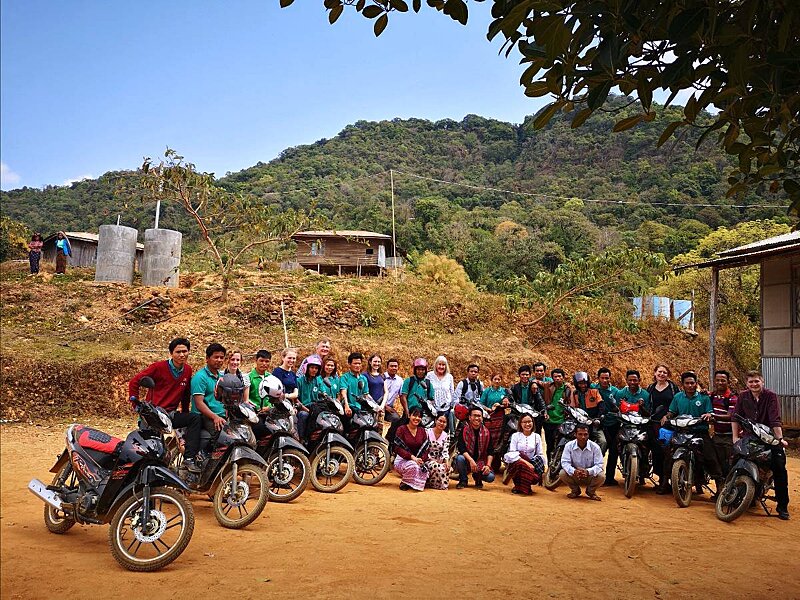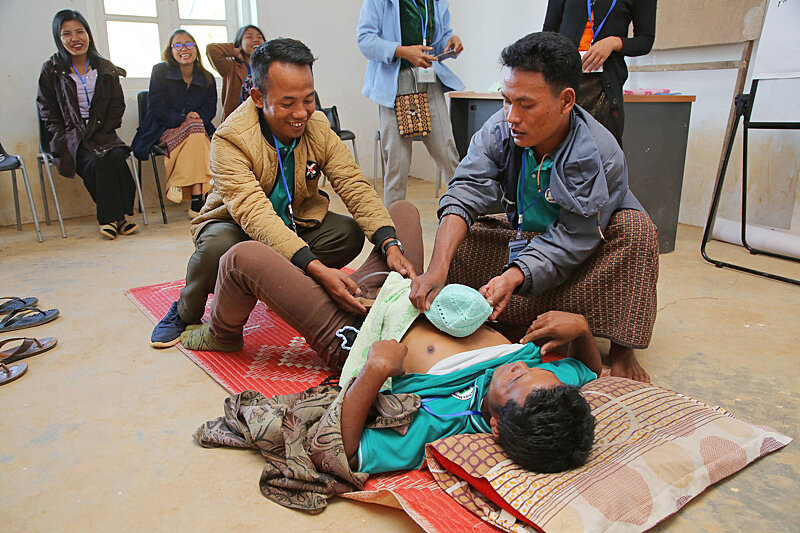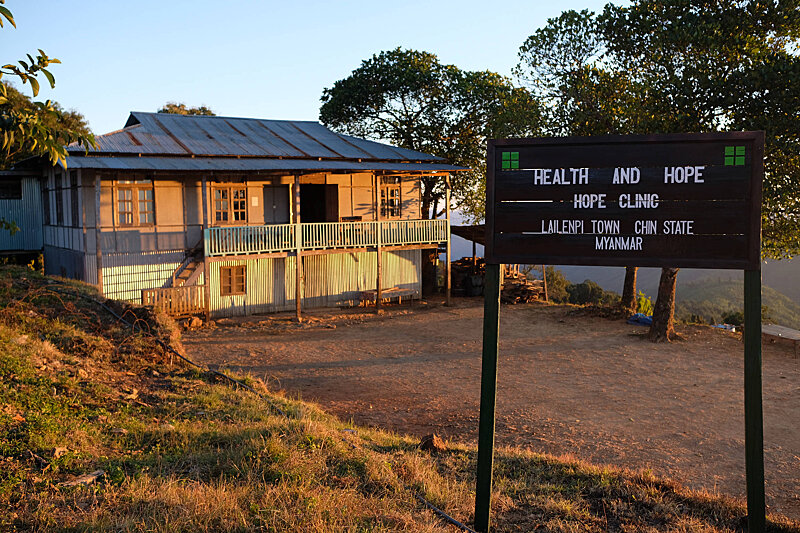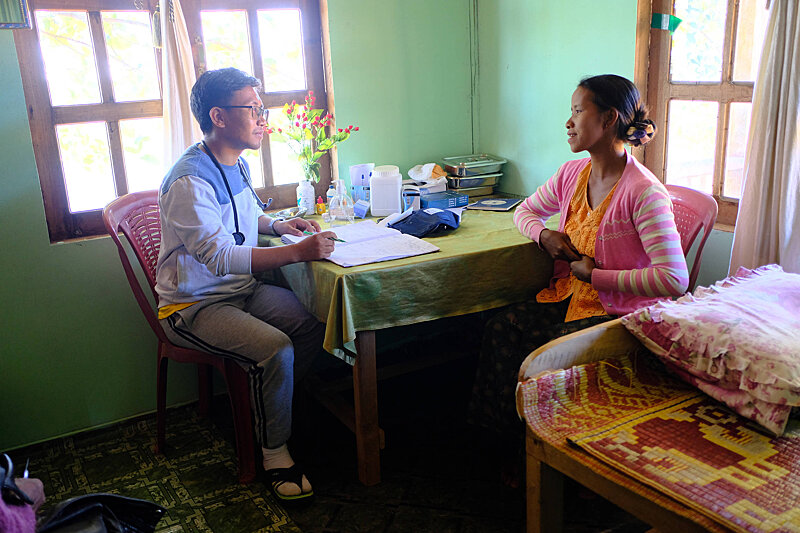Achieving more through partnership
Posted on 21st July 2020 by Philippa Wilford
At Health & Hope we believe in the power of great partnerships.
We have a big vision, and we recognise that we can’t achieve it on our own. That is why we seek to build close relationships with partners who can help us achieve our mission.
One organisation we have partnered with since 2016 is International Health Partners (IHP). Based on a simple idea, its model involves matching medicine and health supplies to need. It is a global health charity that coordinates the safe and responsible donation of medicines and health supplies to people who lack access.
Through our partnership, IHP has provided a broad range of medicines and supplies such as antibiotics and multivitamins as part of our Community-led Health Programme and Hope Clinic, based in Lailenpi. In the last year, our partnership with IHP has enabled the provision of 53,000 treatments in the communities where we work.
"Health & Hope’s work in Chin state to train community health workers allows communities to access healthcare care across a large rural area – otherwise people would have to travel days to reach a healthcare facility,” says IHP’s programmes manager, Hannah Dean.
She adds: “We support Health & Hope with medicines and supplies, enabling community health workers to use kits that provide a range of primary healthcare treatments for different medical needs. We are delighted to support Health & Hope with a programme that is having such a huge impact across the region. The community health worker model should be encouraged across the sector as an effective way to deliver healthcare in remote areas."
Access to medication is a vital component in providing healthcare in a rural setting. These resources are highly sought after by the Community Health Workers (CHWs) whom we have trained throughout the region. Many patients with minor illnesses and injuries seen by the CHWs can be easily treated when these basic medications are available.
Through our Community-led Healthcare programme, we run a series of workshops each year, providing specialist training to Area Co-ordinators. The Co-ordinators disseminate this knowledge to the Community Health Workers who they oversee in their areas. The Area Co-ordinators are given bespoke training on safe use of medicines; contraindications; and guidance on how to log and track prescriptions.
In a recent random sampling of 54 villagers in nine villages, it was seen that the medicines distributed through the Health & Hope / IHP partnership were generally the only means of provision for villagers in the region.
In addition to our mobile community programme, IHP medicines have supplied Hope Clinic, based in Lailenpi, which treats close to 2,000 patients each year.
The joy of receiving supplies
This is Revai, one of the Health & Hope trained CHW’s, receiving his pharmaceutical supplies. These are transported in rice sacks by motorbike, and then kept in secure boxes along with medication guidelines. There was incredible joy and a deep sense of gratitude on receipt of the supplies.
Revai was trained by Health & Hope in 2009-2010 and has served his village and community ever since. Common illnesses he has treated include typhoid, fever of unknown origin, diarrhoea, headaches and abdominal pain. Women with deep lacerations to limbs following injuries collecting firewood and motorbike accidents are also prevalent. Revai serves a small village of 30 households and spoke of how difficult it was to manage sick and injured patients without medications. Diagnosis is only part of the story for patients, and without appropriate medicine some do not get better.
Where medications are not available, he will write down what is needed and leave it up to the individual or their family to source them. Even if they have enough money, medication can be difficult to find. There are also a large number of counterfeit products sold at local markets, and so any medicine bought this way comes at a risk.
Where medication is available in local shops and pharmacies, there is a higher cost involved. Families in Chin State place a very high importance on their health and are even willing to go into debt to purchase medicine. This is a growing problem for households not just in Chin State, but across the whole of Myanmar.
Being able to provide medications, thanks to our partnership with IHP, not only works to avoid significant family debt, but also ensures timely treatment. This dramatically improves outcomes for patients, and reduces the risk of secondary conditions.
We value working with an organisation that has vital networks and expertise, and one that shares our values and mission.

